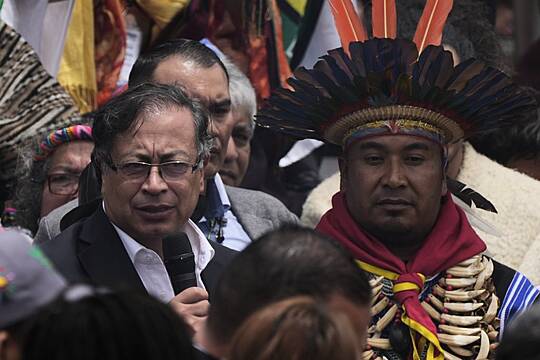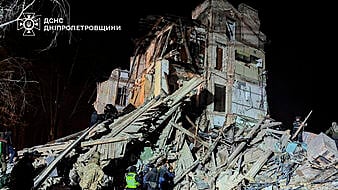Colombia’s first leftist president will be sworn into office on Sunday, promising to fight inequality and heralding a turning point in the history of a country haunted by a long war between the government and guerrilla groups.
Senator Gustavo Petro, a former member of Colombia’s M-19 guerrilla group, won the presidential election in June by beating conservative parties that offered moderate changes to the market-friendly economy, but failed to connect with voters frustrated by rising poverty and violence against human rights leaders and environmental groups in rural areas.
Mr Petro is part of a growing group of leftist politicians and political outsiders who have been winning elections in Latin America since the pandemic broke out and hurt incumbents who struggled with its economic aftershocks.
The ex-rebel’s victory was also exceptional for Colombia, where voters had been historically reluctant to back leftist politicians who were often accused of being soft on crime or allied with guerrillas.

A 2016 peace deal between Colombia’s government and the Revolutionary Armed Forces of Colombia turned much of the focus of voters away from the violent conflicts playing out in rural areas and gave prominence to problems like poverty and corruption, fuelling the popularity of leftist parties in national elections.
Mr Petro (62) has promised to tackle Colombia’s social and economic inequalities by boosting spending on anti-poverty programmes and increasing investment in rural areas.
He has described US-led antinarcotics policies, such as the forced eradication of illegal coca crops, as a “big failure”.
But he has said he would like to work with Washington “as equals”, building schemes to combat climate change or bring infrastructure to rural areas where many farmers say coca leaves are the only viable crop.







